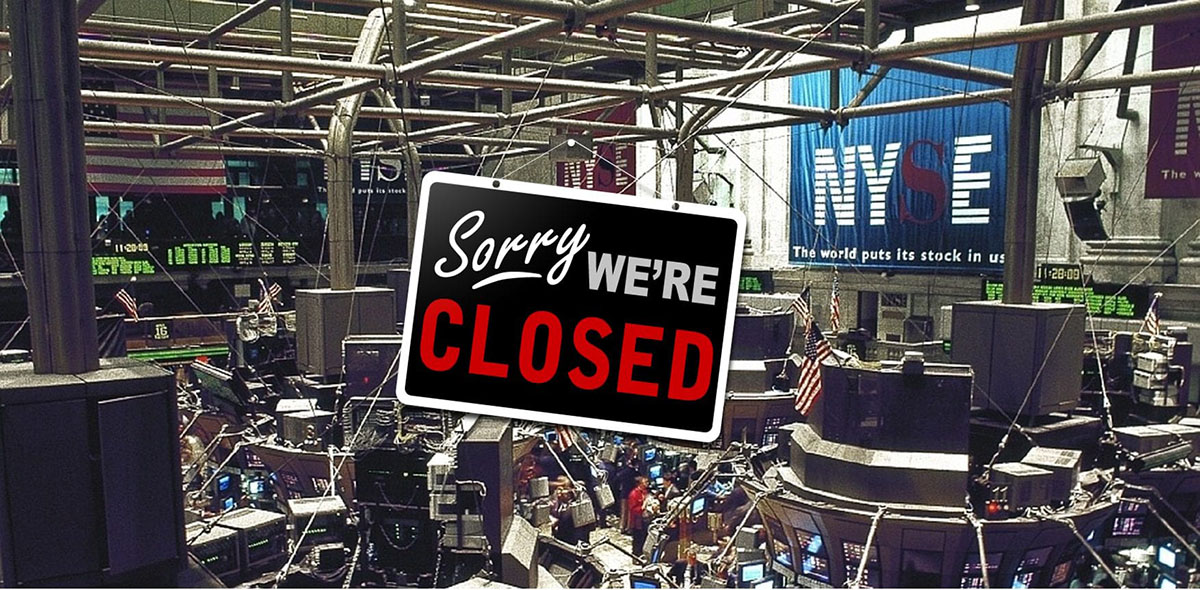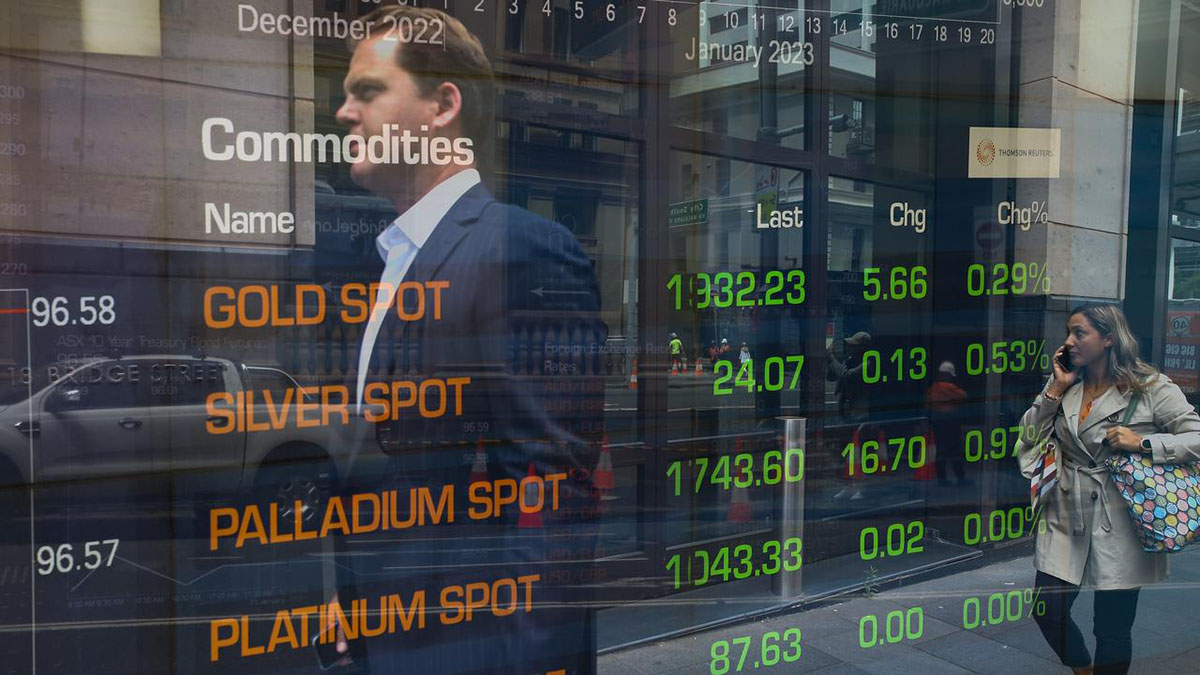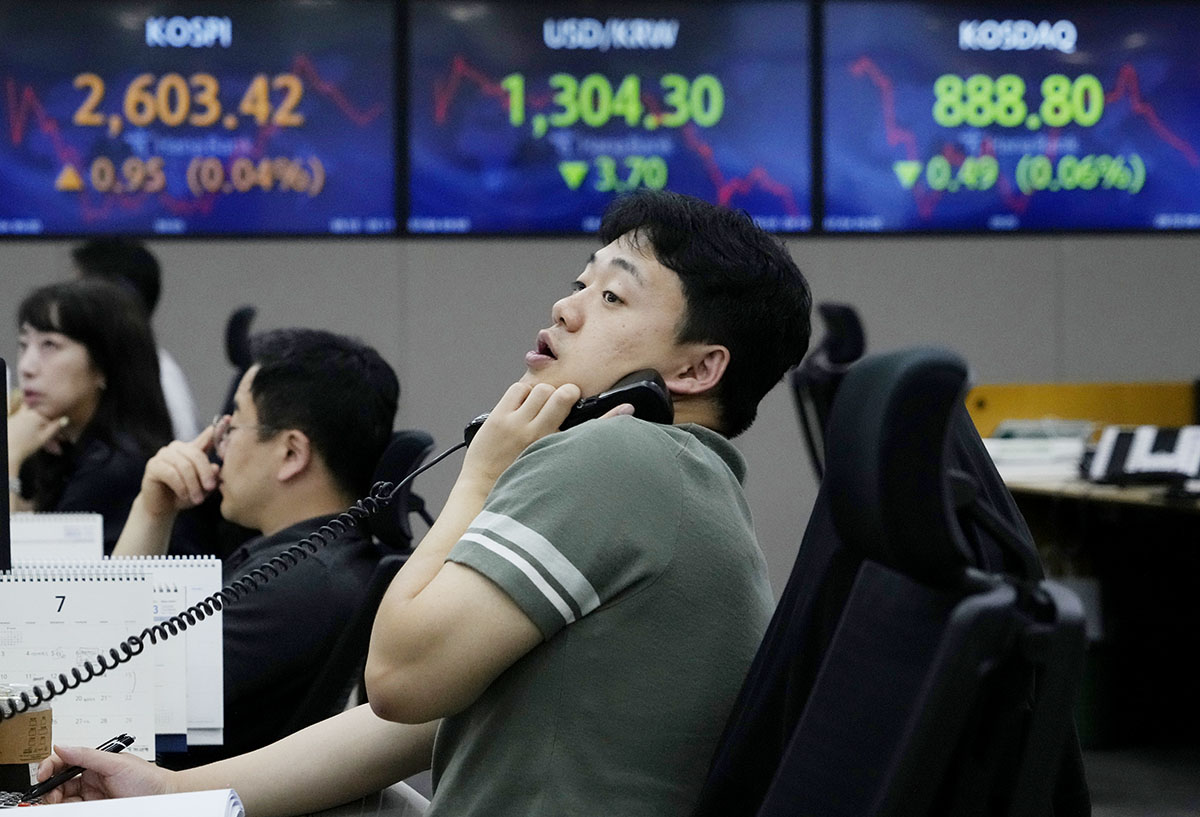Home>Finance>How Many Days Are The Stock Market Open Annually


Finance
How Many Days Are The Stock Market Open Annually
Published: November 3, 2023
Discover how many days the stock market is open annually in the world of finance. Plan your investments and trading strategies accordingly.
(Many of the links in this article redirect to a specific reviewed product. Your purchase of these products through affiliate links helps to generate commission for LiveWell, at no extra cost. Learn more)
Table of Contents
Introduction
When it comes to investing in the stock market, it’s important to stay informed about the trading schedule. The stock market is not open every day of the year, and understanding the annual trading calendar is crucial for investors, traders, and financial professionals alike.
The stock market operates on a schedule that includes trading days, market holidays, and extended trading hours. This schedule allows investors to buy and sell stocks, bonds, and other securities. While the market holidays provide a break from trading, the regular trading days provide ample opportunities for investors to make informed decisions and take advantage of market fluctuations.
By understanding the stock market’s annual trading schedule, you can plan your investment strategies accordingly and avoid any unexpected surprises. In this article, we will discuss the number of trading days in a year, the market holidays observed by major exchanges, and the impact of extended trading hours on investors.
So, if you have ever wondered how many days the stock market is open each year, let’s find out.
Market Holidays
The stock market observes several holidays throughout the year when trading is closed. These market holidays are observed by major exchanges such as the New York Stock Exchange (NYSE) and NASDAQ. On these holidays, investors cannot buy or sell securities, and the markets are closed for the day.
Some of the common market holidays include New Year’s Day, Independence Day, Thanksgiving Day, and Christmas Day. These holidays are observed by the stock market to allow investors and traders to take a break, spend time with their families, and celebrate important national and religious occasions.
In addition to these major holidays, there are a few more market holidays that may vary depending on the country or exchange. For example, Presidents’ Day, Martin Luther King Jr. Day, and Labor Day are market holidays observed in the United States. Similarly, different countries have their own set of market holidays.
It’s important to note that some holidays are observed on different dates each year. For instance, Thanksgiving Day in the United States is celebrated on the fourth Thursday of November. Therefore, it’s crucial for investors to stay updated with the annual trading calendar and be aware of the market holidays to plan their investment strategies accordingly.
During market holidays, while the stock exchanges are closed, some financial instruments may still be traded on other platforms or in different markets. This includes futures contracts, certain options contracts, and foreign exchange markets. However, it’s important to check with your brokerage or financial advisor for specific trading schedules and availability.
In summary, market holidays provide a break from regular trading activities and allow investors and traders to take time off. These holidays are observed by major exchanges, and trading in securities is not possible on these days. By understanding and keeping track of these market holidays, investors can plan their investments and avoid any inconvenience caused by the unavailability of trading on these days.
Regular Trading Days
Regular trading days are the days when the stock market is open for trading. These are the days when investors can buy and sell stocks, bonds, and other securities.
In the United States, the stock market operates on a Monday-to-Friday schedule, with the exception of market holidays. The New York Stock Exchange (NYSE) and NASDAQ, two of the major stock exchanges in the country, open their trading sessions at 9:30 AM Eastern Time and close at 4:00 PM Eastern Time.
During regular trading days, market participants have the opportunity to react to news events, economic data, and corporate earnings announcements. They can analyze stock charts, place trades, and manage their investment portfolios.
Regular trading days provide a significant amount of liquidity and trading volume in the market. This makes it easier for investors to buy or sell securities at fair prices, as there are more buyers and sellers actively participating.
It’s important to note that different stock exchanges around the world may have different trading hours and days of operation. Some exchanges may have shorter trading hours or operate on different days of the week.
Moreover, trading hours for specific asset classes, such as futures or options, may also differ from regular equity trading hours. It’s essential for investors to be aware of these differences and make informed decisions based on the specific markets they are trading in.
While regular trading days offer ample opportunities for investors, it’s important to approach the market with a well-thought-out investment strategy. This includes conducting thorough research, identifying investment goals, and managing risk effectively.
Overall, regular trading days are the backbone of the stock market. They provide investors with the opportunity to participate in the buying and selling of securities, allowing them to take advantage of market movements and make informed investment decisions.
Extended Trading Hours
In addition to regular trading hours, some stock markets offer extended trading hours, also known as after-hours trading or pre-market trading. These extended hours allow investors to buy and sell securities outside of the regular trading session.
Extended trading hours provide market participants with additional opportunities to react to news events and corporate announcements that may occur outside of regular trading hours. This can be especially beneficial for investors who are unable to trade during normal market hours due to work or other commitments.
The extended trading hours typically occur before or after the regular trading session. Pre-market trading, for example, takes place before the market opens, while after-hours trading takes place after the market closes. These extended trading sessions may have different rules and regulations compared to regular trading hours.
It’s important to note that extended trading hours are not available for all securities and asset classes. Generally, they are more common for larger, actively traded stocks. Less liquid stocks, small-cap stocks, and certain types of securities may not be available for trading during extended hours.
While extended trading hours offer flexibility and convenience, it’s crucial for investors to be mindful of the potential risks involved. During extended hours, there is typically lower trading volume, and bid-ask spreads may be wider, which can result in higher transaction costs. Additionally, market volatility may be higher during these hours, leading to larger price swings.
Moreover, market participants should be aware that news and market events can impact stock prices during extended trading hours. It’s important to stay updated with financial news and developments to make informed decisions during these sessions.
Investors should also be aware that not all brokerage firms or platforms offer extended trading hours. It’s important to check with your specific brokerage to see if they offer after-hours trading and what their specific rules and fees are.
Overall, extended trading hours provide investors with the opportunity to trade outside of regular market hours and react to news events and corporate announcements. While they offer flexibility, investors should exercise caution, be aware of the potential risks, and have a well-defined trading strategy in place.
Impact on Trading Strategies
The trading schedule, including market holidays, regular trading days, and extended trading hours, has a significant impact on trading strategies. Understanding how these factors influence the market can help investors develop effective and successful trading strategies.
Market holidays play a crucial role in trading strategies as they provide breaks from the constant flow of trading activity. Investors often use this time to review their investment portfolios, analyze market trends, and plan for future trades. Market holidays also allow investors to reflect on their performance and make any necessary adjustments to their strategies.
Regular trading days, on the other hand, offer a wealth of opportunities for traders. These days are characterized by higher liquidity, increased trading volumes, and more market participants. Traders can take advantage of price fluctuations, news releases, and technical analysis to execute their trading strategies effectively.
The availability of extended trading hours can significantly impact trading strategies as well. Traders who are unable to participate during regular trading hours may find extended hours beneficial, as they allow for greater flexibility and the ability to react to after-market or pre-market news events.
However, it’s important for traders to understand the potential risks associated with extended trading hours, such as lower liquidity and increased volatility. Traders should carefully consider their risk appetite and adjust their strategies accordingly.
Moreover, different trading strategies may be more suitable for specific market conditions. For example, day trading strategies, which involve opening and closing positions within the same trading day, may be more effective during regular trading hours when market activity is at its peak. On the other hand, swing trading strategies, which aim to capture multi-day price movements, may benefit from extended trading hours to react to overnight news events.
Traders should also consider the impact of market holidays and extended trading hours on order execution. During market holidays, there may be a backlog of orders that can impact order fulfillment and execution. Similarly, during extended trading hours, the liquidity and volume may be lower, potentially affecting the execution of larger trades.
In summary, the trading schedule, including market holidays, regular trading days, and extended trading hours, has a significant impact on trading strategies. Investors should consider these factors when developing their strategies, adjusting their approach based on market conditions and their individual trading goals. By understanding these dynamics, traders can make more informed decisions and increase their chances of success.
Conclusion
Understanding the stock market’s annual trading schedule is essential for investors and traders to navigate the financial markets effectively. Market holidays provide a break from trading, allowing participants to celebrate important occasions and spend time with their loved ones. Regular trading days offer plentiful opportunities to buy and sell securities, reacting to market news and economic data. Extended trading hours provide flexibility for those unable to trade during regular hours, allowing them to react to after-market or pre-market events.
By being aware of market holidays, investors can plan their investment strategies accordingly, avoiding any inconvenience caused by the unavailability of trading. Regular trading days, with their higher trading volumes and liquidity, provide opportunities for investors to make informed decisions and react to market events. Extended trading hours offer additional flexibility, but investors must be cautious of the potential risks and adjust their strategies accordingly.
Effective trading strategies take into account the impact of market holidays, regular trading days, and extended trading hours. Traders should consider their risk appetite, market conditions, and individual trading goals when developing their strategies. Different strategies may be more suitable for specific market conditions, and traders must adapt to the ever-changing dynamics of the stock market.
In conclusion, understanding the stock market’s annual trading schedule is crucial for investors and traders alike. By staying informed about market holidays, regular trading days, and extended trading hours, investors can effectively plan their investment strategies and make informed decisions. With careful consideration of market dynamics and a well-defined trading strategy, investors can increase their chances of success in the stock market.














